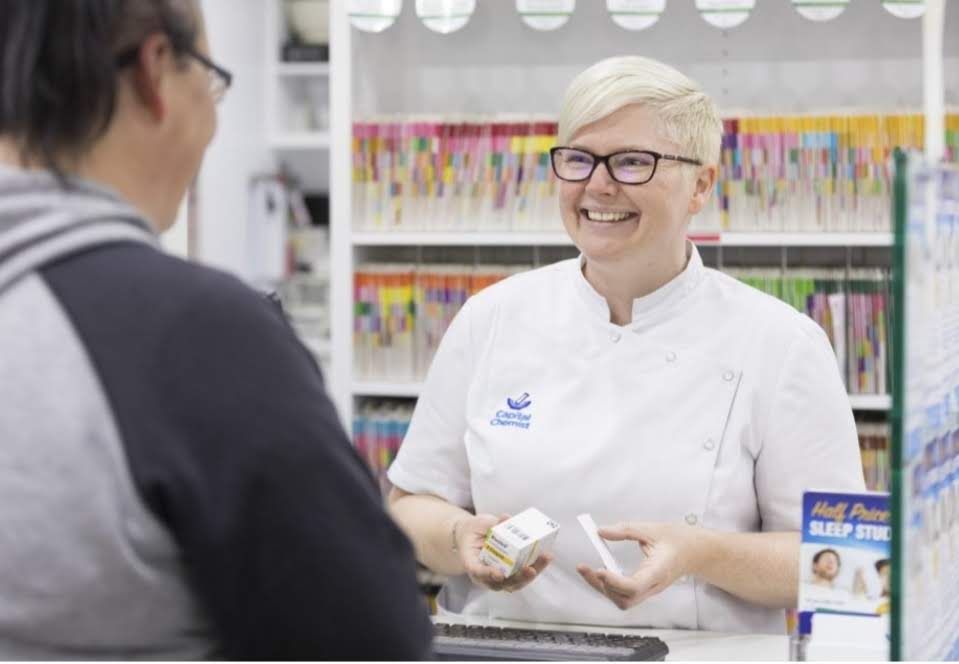A contraceptive pill trial has commenced around the nation to provide better and easier health care for women. The trial involves prescribing the oral contraceptive pill over the counter in a pharmacy without the need of a script from a GP.
It officially commenced in the ACT on Monday, November 13.
Pharmacy Guild ACT Branch president Simon Blacker described the trial as a step forward for Canberra women.
“It’s a good example of community pharmacies partnering with GPs and other health professionals to treat common health conditions with increased accessibility, in a safe and efficient way to unclog the health system,” Mr Blacker said.

“The ACT has now joined NSW, Queensland, and Victoria in the resupply of the oral contraceptive pill to women by community pharmacists.
“Community pharmacies in the ACT are ready to do more for patient’s health by having community pharmacists working to their full scope of practice, and we look forward to working further with the ACT Government on this.”
South Australia is set to introduce the trial in March next year.
Samantha Kourtis, a pharmacist and co-owner of Capital Chemist in Charnwood, Canberra, said her business is one of five pharmacies in the ACT who are now undertaking the trial.
“When it comes to women’s health, there are so many barriers including accessibility, GPs vacancies and affordability, Mrs Kourtis told The Greek Herald.
“We know that if a woman presents at the pharmacy and her script has expired, or she has run out of repeats… we can’t supply it, and if her doctor doesn’t have an appointment available – in the ACT that can take up to a month – then she has to stop the oral contraceptive pill which puts her at risk of pregnancy.
“We want women to have easy access to the health care they deserve, and introducing this trial will mean that we will be able to achieve that.”
Mrs Kourtis said the contraceptive pill trial will allow women to have access to getting their medication without going to a GP to receive a script.
“Pharmacists who have completed a training program at the selected pharmacies in the ACT are now able to resupply, not prescribe, the oral contraceptive pill for women between the ages of 18 and 35,” she said.
“They need to have been taking that same oral contraceptive pill for the previous two years continuously without a break.
“The other really distinguishing factor here is oral contraception for the purposes of contraception. So if a woman is taking the oral contraceptive pill for acne or for managing endometriosis, or other conditions, then that is not in the scope of this trial.”
The Canberra pharmacist said the service provided to a woman who presents herself at the pharmacy is a 15-minute consult.

“The pharmacist then needs to check the patient’s age, their smoking status, they do a blood pressure check, a height and weight to check to check their BMI and they need to find out if there are other contraindications,” Mrs Kourtis said.
“It’s a paid consult, that isn’t covered by Medicare, however its available at a reduced fee of $25 to $30.
“The scope of practice is designed so that a patient’s GP is kept in the loop. There are very clear guidelines to make sure the community is safe, that the GPs are informed and that the pharmacists are adequately trained to provide this service.”
Mrs Kourtis said when NSW first started their contraceptive pill trial, 200 pharmacies were involved. About five months ago, it expanded to almost 1000.
“In the ACT, we have started with five, and we’re hoping that soon, with the evidence that we’ve collected already with the UTI trial, that 50 pharmacies in the ACT will be able to look after their community,” she said.
“Given that we’re following in the steps of NSW, it should be soon. We hope to see the trial become a permanent piece of legislation in the ACT.”
